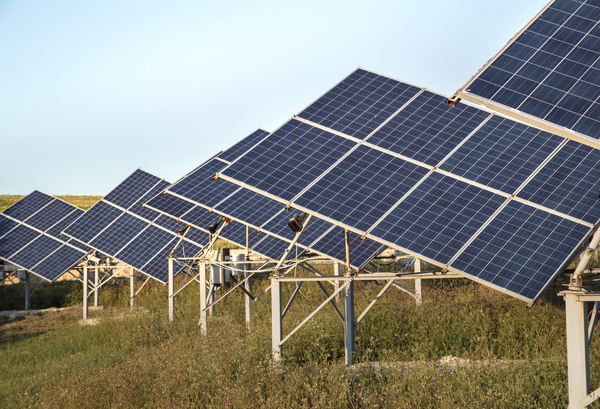ALL BUSINESS
COMIDA
DIRECTORIES
ENTERTAINMENT
FINER THINGS
FREE CREATOR TOOLS
HEALTH
MARKETPLACE
MEMBER's ONLY
MONEY MATTER$
MOTIVATIONAL
NEWS & WEATHER
TECHNOLOGIA
TV NETWORKS
VIDEOS
VOTE USA 2026/2028
INVESTOR RELATIONS
ALL BUSINESS
COMIDA
DIRECTORIES
ENTERTAINMENT
FINER THINGS
FREE CREATOR TOOLS
HEALTH
MARKETPLACE
MEMBER's ONLY
MONEY MATTER$
MOTIVATIONAL
NEWS & WEATHER
TECHNOLOGIA
TV NETWORKS
VIDEOS
VOTE USA 2026/2028
INVESTOR RELATIONS
About Me
 Swapna Singh
Swapna Singh Just a tech geek who’s obsessed with all things electrical and electronics! Loves breaking down complex stuff into simple, fun insights and sharing it with anyone curious enough to learn. Let’s explore the world of circuits, gadgets, and cool innovations together!
 Swapna Singh -
6 hours ago -
Technology -
off grid inverter system
off grid solar inverter
off grid solar power inverter
-
24 views -
0 Comments -
0 Likes -
0 Reviews
Swapna Singh -
6 hours ago -
Technology -
off grid inverter system
off grid solar inverter
off grid solar power inverter
-
24 views -
0 Comments -
0 Likes -
0 Reviews

The world is experiencing a shift toward energy independence, with many individuals and communities seeking alternatives to unreliable or non-existent power grids. Off-grid inverter systems are revolutionizing access to electricity, particularly for remote users who often struggle with power shortages.
These systems offer a self-sustaining energy solution by harnessing renewable sources like solar power, providing consistent electricity without relying on a centralized grid.
This article explores the significance, benefits, recent innovations, and applications of off-grid solar power inverters in remote areas. By the end of this discussion, you will understand why these systems are gaining traction and how they are transforming the lives of remote users worldwide.
Understanding Off-Grid Inverter Systems
An off-grid inverter system is an independent power solution that allows users to generate, store, and consume electricity without relying on a centralized grid.
These systems primarily convert the direct current (DC) electricity generated by renewable energy sources, such as solar panels, into alternating current (AC) electricity that can be used to power homes, businesses, and essential appliances.
Unlike traditional grid-tied systems, these inverters do not depend on an external power supply. Instead, they use batteries that store excess energy generated during the day, ensuring a continuous power supply even when solar production is low, such as at night or on cloudy days.
This makes off-grid solar inverters ideal for remote users requiring a consistent and reliable energy source.
Why Choose an Off-Grid Solar Inverter?
1. Energy Independence
One of the most significant advantages of an off-grid solar inverter system is the ability to generate and store electricity independently. Remote locations often experience frequent power outages or lack access to traditional power infrastructure.
By using off-grid solar power inverters, individuals and communities can take control of their energy needs, reducing their reliance on external sources.
2. Cost Savings Over Time
While the initial investment in an off-grid inverter system may seem high, the long-term benefits outweigh the costs. Traditional power supply in remote areas requires expensive infrastructure investments, such as power lines and transformers.
By contrast, a self-sustaining, off-grid solar power inverter system eliminates the need for such costly installations. Over time, users save money by avoiding electricity bills and potential increases in energy prices.
3. Eco-Friendly Energy Solution
Off-grid solar inverters leverage renewable energy sources like sunlight, reducing the carbon footprint associated with conventional electricity generation.
By embracing solar power, users contribute to environmental sustainability by minimizing greenhouse gas emissions and dependence on fossil fuels.
4. Reliable and Resilient Power Supply
Power reliability is a major concern for those living in remote areas. Harsh weather conditions, grid failures, and maintenance issues can disrupt electricity supply.
An off-grid solar inverter system provides a dependable and resilient solution by ensuring uninterrupted power, even during extreme weather conditions.
5. Scalability and Customization
These systems can be tailored to specific energy needs. Whether a small setup for a cabin or a large-scale system for a remote village, off-grid solutions can be designed to meet various power demands.
Users can expand their systems by adding solar panels, batteries, or inverters.
Innovations in Off-Grid Inverter Technology
The fast advancements in renewable energy technology have significantly enhanced the efficiency and capabilities of off-grid solar inverters. Here are some notable innovations that make these systems more accessible and efficient:
1. Smart Inverter Technology
Modern off-grid inverters come with intelligent energy management features, permiting users to monitor and control their energy consumption in real time. These smart inverters can optimize energy usage, manage battery storage efficiently, and even integrate with mobile apps for remote monitoring and control.
2. High-Efficiency Power Conversion
New-generation off-grid inverters offer improved energy conversion rates, ensuring minimal power loss during the DC to AC conversion process. This enhancement maximizes energy efficiency, making the most of the available solar power.
3. Integration with Advanced Battery Storage
Battery technology has significantly improved, with lithium-ion batteries becoming the preferred choice for off-grid systems.
These batteries gives higher energy density, longer lifespans, and faster charging capabilities than traditional lead-acid batteries. Integrating advanced battery storage with off grid inverters ensures a stable and long-lasting power supply.
4. Hybrid Capabilities
Many modern off-grid solar power inverters now support hybrid functionality, allowing them to combine multiple energy sources, such as solar, wind, and backup generators. This ensures users have a reliable energy supply even when solar power alone is insufficient.
Practical Applications of Off-Grid Inverters in Remote Areas
1. Residential Homes in Off-Grid Locations
Many homeowners in remote areas depend on off grid inverter systems to meet their daily electricity needs. These systems power essential appliances, lighting, and even heating or cooling systems, ensuring a comfortable living environment without reliance on the traditional power grid.
2. Agricultural and Farming Operations
Farmers in remote areas benefit from off-grid solar inverters, which run irrigation systems, greenhouse lighting, electric fencing, and refrigeration for perishable goods. Solar power allows agricultural operations to continue seamlessly, even in off-grid settings.
3. Remote Workstations and Research Facilities
From wildlife research stations to mountain lodges, off grid inverter systems provide a reliable power source for field operations, allowing researchers and workers to operate in isolated locations without interruptions.
4. Healthcare and Community Facilities
Hospitals, clinics, and emergency response centers in remote areas depend on off-grid inverter systems to maintain a steady power supply for medical equipment, vaccine refrigeration, and basic lighting, ultimately improving healthcare access and patient outcomes.
5. Off-grid tourism and Eco-Lodges
Eco-friendly resorts and off-grid lodges are gaining popularity among travelers seeking sustainable vacation experiences. Off-grid solar inverters provide electricity for accommodations, cooking, and recreational activities without negatively impacting the environment.
Choosing the Right Off-Grid Solar Inverter
Selecting the right system depends on several factors, including energy consumption needs, battery capacity, inverter size, and budget. Here are a few considerations when choosing an off-grid solar power inverter:
Power Output Capacity: Ensure the inverter can handle the total wattage of all connected appliances.
Battery Compatibility: Choose an inverter that integrates well with high-efficiency batteries.
Durability and Weather Resistance: Remote areas may experience harsh weather conditions, so opt for an inverter with robust protection features.
Efficiency Ratings: Look for inverters with high efficiency to maximize energy output.
Manufacturer Support and Warranty: Reliable after-sales service and warranty coverage are crucial for long-term maintenance and repairs.
Conclusion
Off-grid inverter systems represent a powerful and practical solution for remote users seeking energy independence, reliability, and sustainability.
As renewable energy technology evolves, off-grid solar inverters will become more efficient, cost-effective, and widely adopted.
By investing in an off-grid solar power inverter, individuals and communities can be free from the limitations of traditional power grids, reduce their environmental impact, and enjoy a seamless electricity supply, no matter how remote their location.

